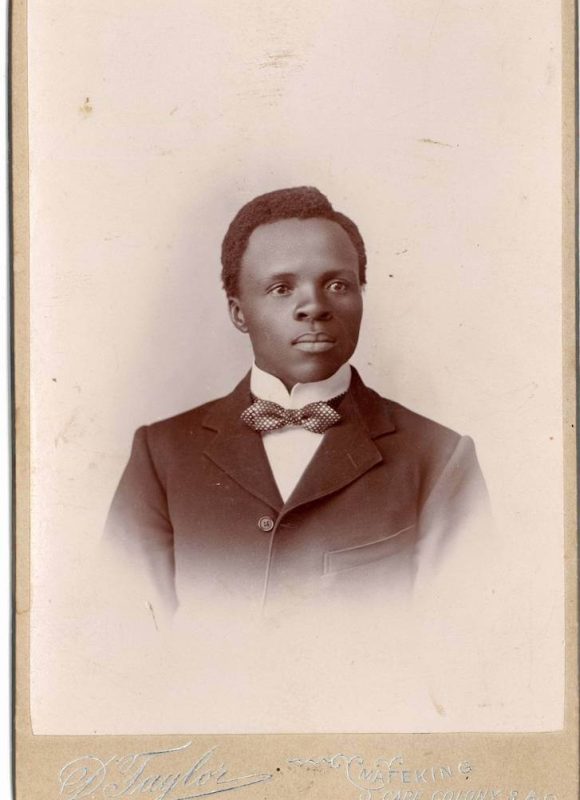PIONEER
Solomon Tshekisho Plaatje

Politician | Journalist | Community activist
Born: 9 October 1876 Died: 19 June 1932
“Unity is strength … let us raise ourselves. Let us work together. Let us unite.”
Who is
Solomon Tshekisho Plaatje?
Twentieth century African intellectual, political activist, and writer.
Professions
and Roles
Intellectual, journalist, educationalist, editor, writer, activist, translator, and founding member of the South African Native National Congress (SANNC).
Best Known For
Appointed the first secretary of the SANNC.
Life highlights
- Plaatje started a Setswana newspaper called Koranta ea Becoana in 1901.
- Due to financial difficulties, Koranta stopped publishing in 1908, but with the backing of different financiers, Plaatje launched Tsala ea Becoana (Friend of the Tswana) – another bilingual newspaper in 1910 in Kimberley.
- Plaatje was one of the founders of the SANNC and acted as its first secretary.
- After petitioning against the 1913 Natives’ Land Act which the new Union government had just passed in South Africa, he was sent as a delegate to London in 1914 to protest the Act. During this period he wrote the famous book entitled Native Life In South Africa as a response to the Act, which he demonised as ‘iniquitous’ and sealing ‘the doom’ of the African people.
- Plaatje was also one of the founders of the South African Native College, which would later be renamed the University of Fort Hare, as he believed passionately about the right to quality education.
- Plaatje died in 1932, at the age of 55, due to pneumonia. He was buried in Kimberley, where some years earlier the community had rallied together to buy him a plot of freehold land. It is said that over 1 000 people attended his funeral.
- Today, there are numerous monuments and memorials named after him, including the Sol Plaatje University in Kimberley, and the Department of Basic Education Building in Pretoria, the municipality in which Kimberley is situated. His old house and his grave are heritage sites.
IN THEIR OWN WORDS
“Educate your children so that they can carry forward their parents’ legacy here in Africa, and with more knowledge than their parents possessed … Children who go to school think education only means eloquence in a foreign language. They look down upon their own culture and feel ashamed of their own language, Setswana … Batswana, my people, we are lost. We are a community of slaves and imitators without a backbone … Can we really be anything in the world if we do not know our identity? … Batswana, rouse yourselves, wake up and be proud of Setswana.”
– Solomon Plaatje, Address at Mahikeng, February 1903
IN THE WORDS OF OTHERS
“Plaatje was the composite South African of the future: learned, eloquent, multi-lingual, well-travelled, multi-cultural. He set a high standard for rigorous investigative journalism and data-driven activism. He would no doubt have been exemplary in upholding the Constitution of South Africa as the one hope for a grounded national unity that is as visionary as it is embodied in lived life.”
– Professor Njabulo Ndebele, writer and academic
